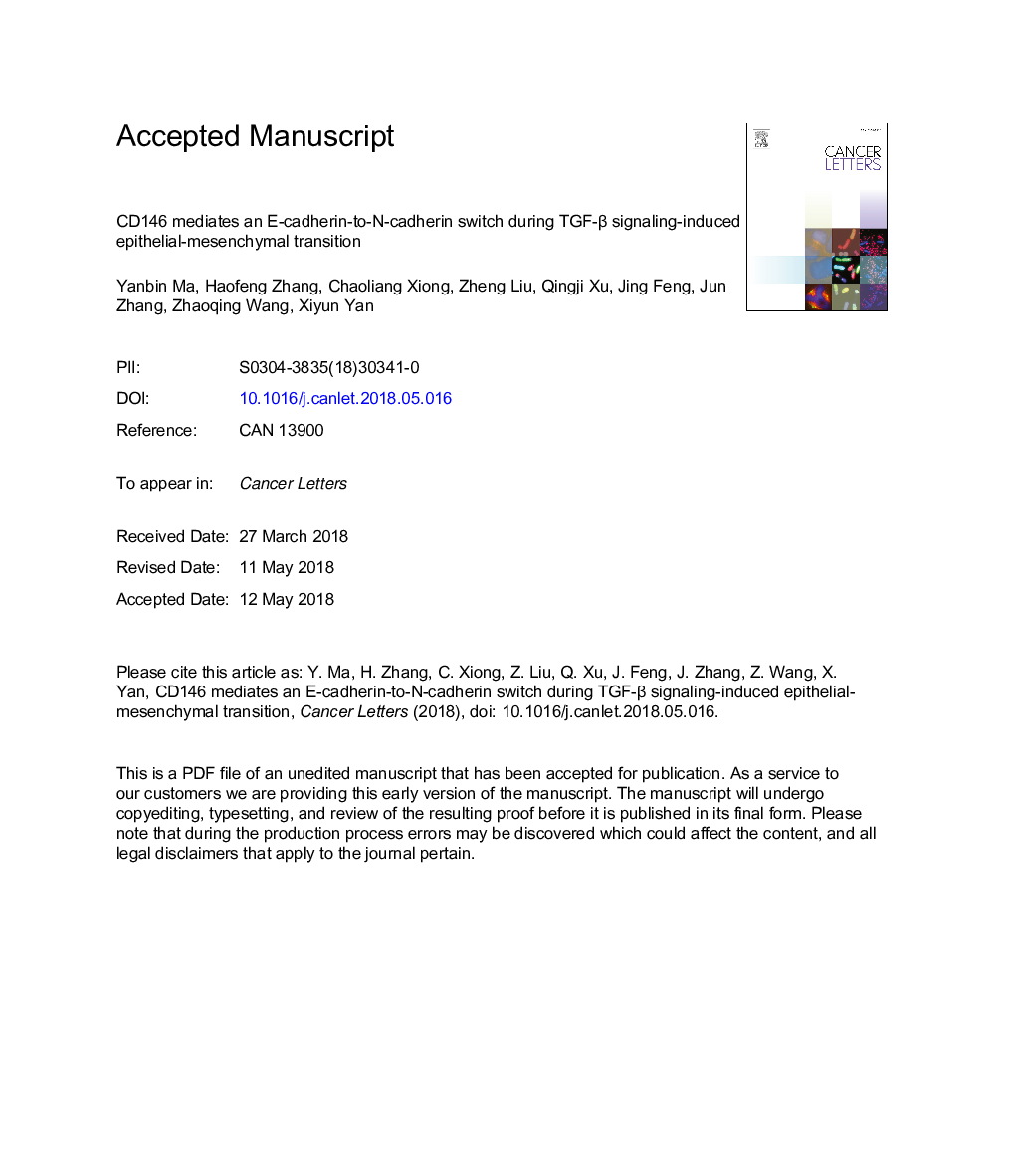| Article ID | Journal | Published Year | Pages | File Type |
|---|---|---|---|---|
| 8434329 | Cancer Letters | 2018 | 49 Pages |
Abstract
Cadherin switch is an initiating factor of epithelial-mesenchymal transition (EMT) and is intimately correlated with cancer metastatic potential; however, its underlying mechanisms remain unclear. Here, using a transforming growth factor-β (TGF-β)-induced EMT model, we provide explicit evidence that CD146, with elevated expression and activity in a variety of cancers, is a key factor involved in the cadherin switch. We show that CD146 can be induced by TGF-β signaling. Moreover, CD146 expression is positively correlated with the activation levels of STAT3/Twist and ERK pathways. Transcriptional response of the CD146/STAT3/Twist cascade inhibits E-cadherin expression, whereas the CD146/ERK cascade enhances N-cadherin expression. CD146 overexpression also significantly promotes EMT in both mouse embryonic fibroblasts (MEFs) and ovarian cancer cells. Clinically, ovarian cancer patients with detectable CD146 expression had a significantly lower survival rate than that of patients without CD146 expression. Furthermore, CD146-deficient MEFs exhibited decreased motility as a result of reversion in this cadherin switch, strongly suggesting that targeting CD146 is a potential strategy for cancer treatment. Therefore, CD146-mediated regulation of the E-cadherin-to-N-cadherin switch provides an insight into the general mechanisms of EMT as well as cancer metastasis.
Keywords
FGFR-SMADTGF-βNeuronal cadherinPDGFERKSTAT3N-cadherinMEFE-cadherinMAPKsIHCImmunohistochemistryOverexpressiontransforming growth factor-βEMTVascular endothelial growth factorVascular Endothelial Growth Factor (VEGF)platelet-derived growth factorfibroblast growth factorsignal transducers and activators of transcriptionBMPmouse embryonic fibroblastknockoutwild typeBone morphogenetic proteinExtracellular regulated protein kinasemitogen activated protein kinaseepithelial cadherinEpithelial-mesenchymal transition
Related Topics
Life Sciences
Biochemistry, Genetics and Molecular Biology
Cancer Research
Authors
Yanbin Ma, Haofeng Zhang, Chaoliang Xiong, Zheng Liu, Qingji Xu, Jing Feng, Jun Zhang, Zhaoqing Wang, Xiyun Yan,
